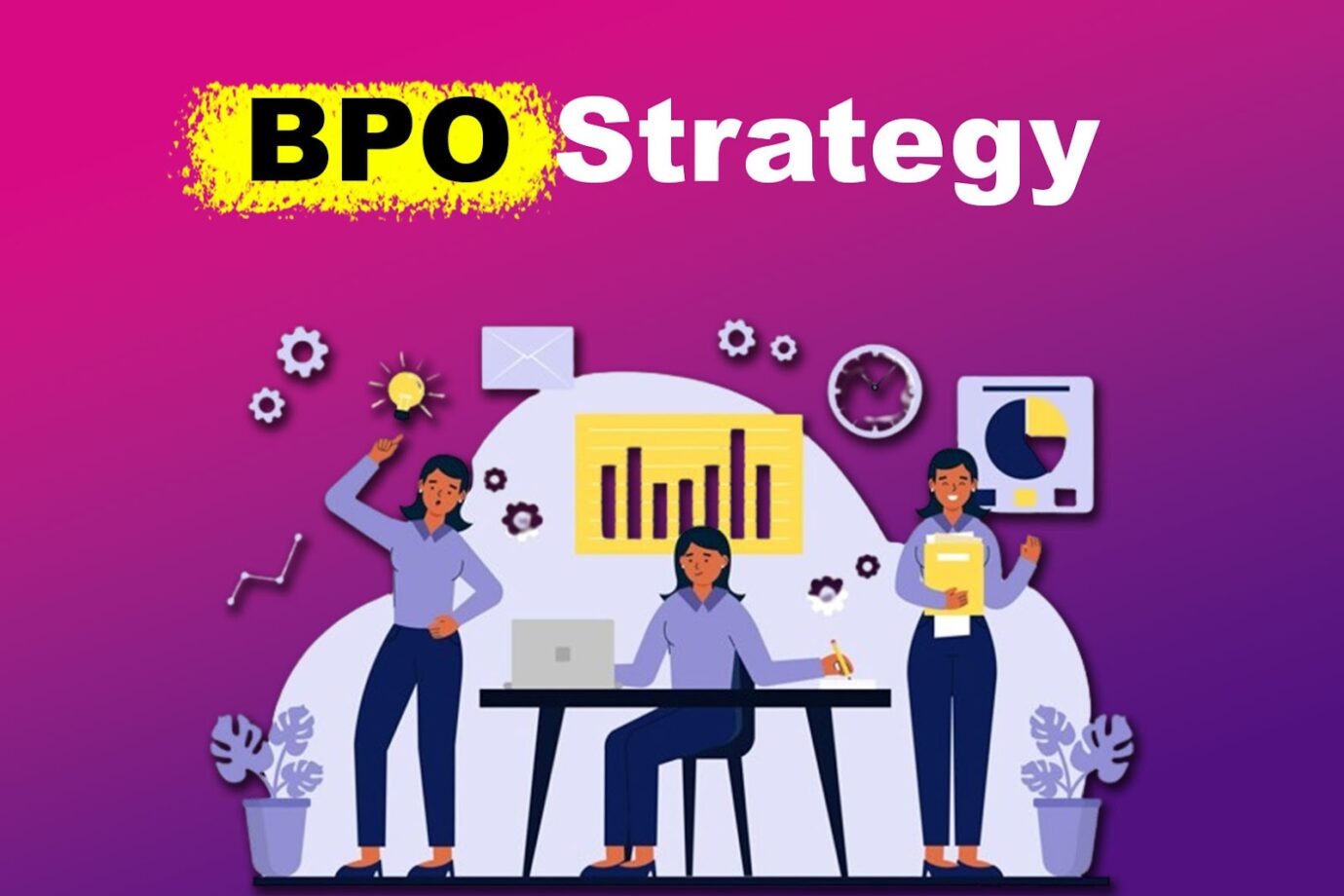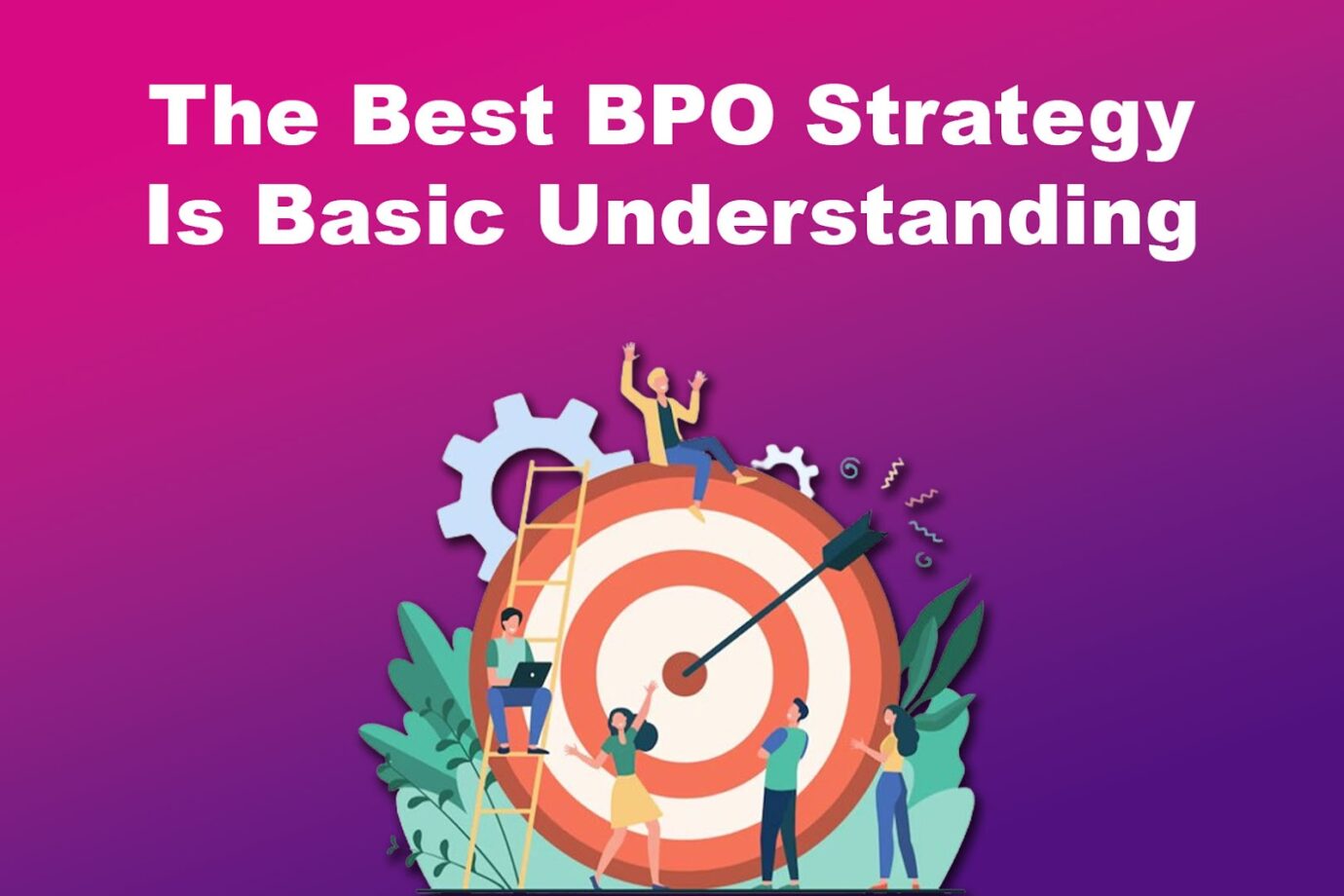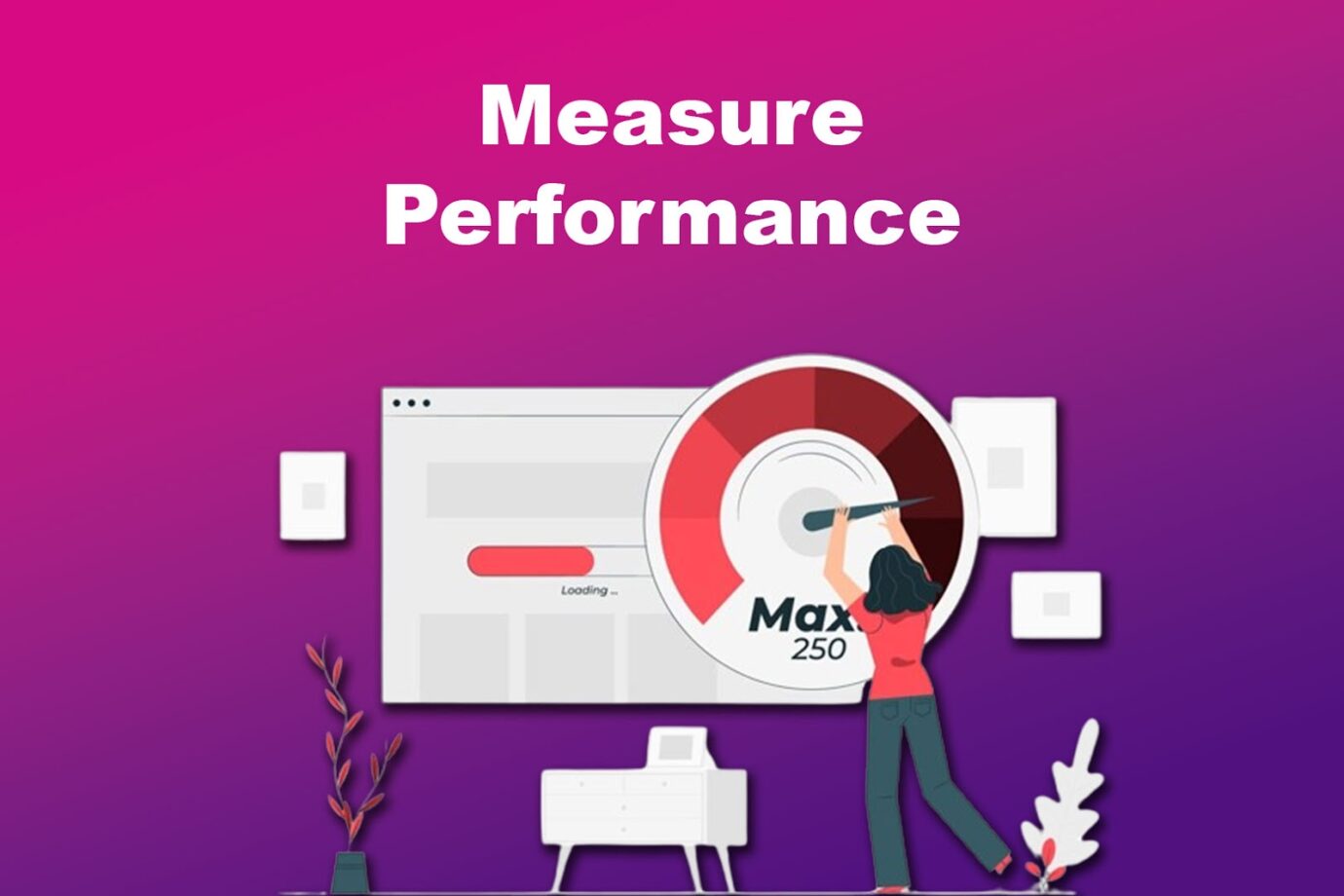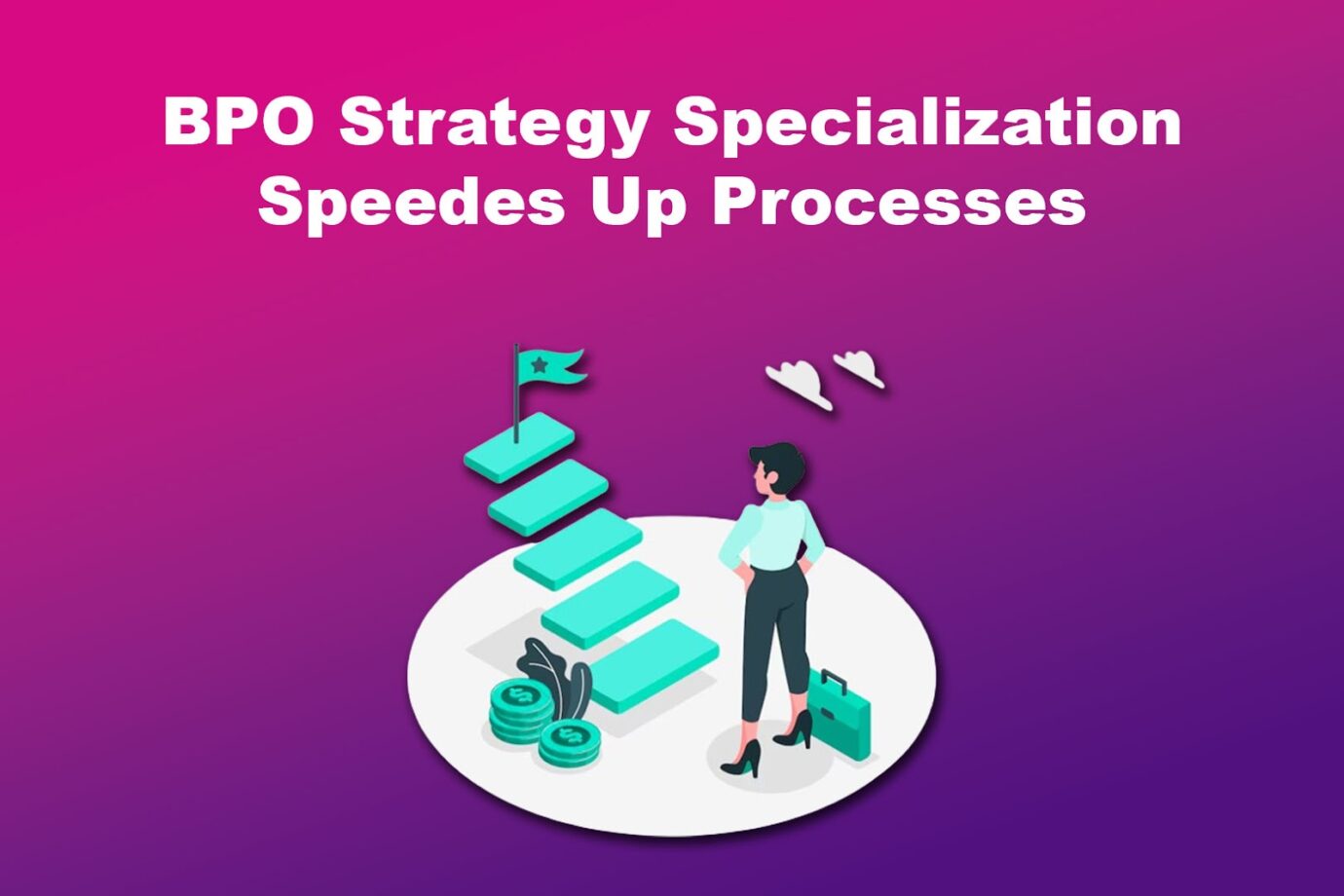You’ve probably heard of the BPO acronym or Business Process Outsourcing, but have you heard of BPO strategies? A good BPO strategy will help BPO companies and customers, resulting in a fruitful contract.
Failing to understand which BPO strategies apply to you might lead to wasted time and resources, hindering your business growth and competitive edge in the market. And we don’t want that, do we?
In this article, we’ll help you understand BPO strategies and what you should consider employing either as a BPO company or a client.

What Does BPO Strategy Mean?
BPO strategy means crafting a plan for a company when it decides to hand off specific tasks to outside experts. It involves choosing which jobs to delegate, finding the perfect partners to do them, setting clear expectations with those partners, and ensuring everything runs smoothly and legally.
When creating a BPO strategy, you must think about many things. This includes saving money, tapping into specialized skills or tech, being able to adjust as your company grows easily, and keeping your focus on the things your company is great at.
The goal is to make your business more efficient, productive, and competitive while staying true to your mission.
Check out this LinkedIn article to help you further understand what BPO strategy means.
What Is the Best Strategy for Outsourcing?
The best outsourcing strategy depends on your business needs and goals. If you’re starting out, the best strategy is to help responsible employees understand how to equip outsource models. Without a basic understanding, you won’t be able to adopt other outsourcing strategies efficiently.

Once equipped with BPO or outsourcing knowledge, the next best strategy is outlining your organization’s goals and objectives. Do you want to save some money, get access to some excellent skills you don’t have in-house, make things run smoother, or be able to grow when you need to easily?
Knowing your goals upfront will help determine which outsourcing options best fit your business.
Check out the different types of BPO.
Effective BPO Strategies
The most effective BPO strategies depend on whether you’re a company looking to outsource or a BPO company itself.
These are some effective BPO strategies for you to consider:
1. If You Want to Outsource Tasks From a BPO Company
Here are effective BPO strategies you can employ if you want to outsource tasks from a BPO company:
-
Budget Smart & Prepare for Surprises.
When budgeting, think beyond your current needs. Factor in how extra help can cut costs in the long run, and watch out for surprises like turnover.
Hidden costs can sneak up on you, so lean on a good BPO firm to help you find the balance. Check out this article to find out how to avoid the hidden costs of outsourcing.
- Outsource Tasks, Not Projects.
Tasks are great for outsourcing to a team—they’re clear-cut and fit into a process. But for projects, think about bringing in a business consultant to tackle the big stuff. This BPO strategy will help you long-term. - Find the Right BPO Company.
Choose a company with the skills you need. Check out its track record, industry smarts, and vibe to see if it’s a good match. - Roll with the Seasons.
When things get hectic, think about beefing up your budget. Remember, a top-notch customer experience keeps them coming back for more. So, ramping up support—more hours, more ways to get in touch—is a solid move to keep those customers smiling. - Give Clear Instructions.
Ensure you’re crystal clear about what needs to be done. Give them all the details—what, how, when, you name it. Make sure the BPO company gets what you’re after. The more they understand your needs and expectations, the smoother things will run.
If you’re still on the process of starting your business, it’s important to know how much BPO costs.
2. If You Run a BPO Company
Here are effective BPO strategies you can employ if you’re running a BPO company:
-
Assign Dedicated Relationship Managers.
Consider this BPO strategy to help you retain clients. Remember to check in with your clients regularly through surveys, listen to what they say, and jump on fixing any issues immediately.
- Identify Your Target Niche.
Take some time to figure out who exactly you want to serve. Next, tailor your services to fit their needs. By focusing on a specific group, you’re showing them that you get what they’re dealing with and that you’re the perfect match to help them. - Tailor-Fit Solutions.
BPO services have their usual way of doing things, but you can improve your services by going the extra mile to tailor solutions for each client. Flexibility and adaptability are key to giving clients a personalized experience beyond what they expect. - Implement Risk Management.
Everything is digital now, so you need to protect yourself better. Think about keeping your data safe from sneaky breaches, ensuring you’re following all the rules, and having plans for when things don’t go as smoothly as butter. -
Measure Performance.
Set up easy-to-track metrics and key performance indicators (KPIs) to see how your company is doing.
Here’s a LinkedIn article elaborating on effective BPO strategies for client retention.
If you’re still unsure which strategies to focus on, consider seeking advice from a BPO strategy consulting firm. This way, you won’t end up second-guessing your actions and will be assured that you’re getting an expert opinion.
How Does BPO Speed Up Business Process?
BPO speeds up business processes by providing round-the-clock support, access to professionals, quick turnarounds, flexibility, and more. By outsourcing the nitty-gritty stuff, you can focus on what matters—building your business and staying ahead of the game.
Here’s an overview of how BPO improves business processes:
- Round-the-Clock Support.
Need help at 2 a.m.? No worries! Many BPO providers offer 24/7 support, so you can get help whenever needed, no matter where you are. -
Specialization.
According to a LinkedIn article, BPO staff are pros at what they do—customer service, IT support, or accounting. They have the skills and know-how to get things done quickly and smoothly.
- Quick Turnarounds.
BPO professionals know how to get things done fast. With clear processes and deadlines, they’ll have your tasks wrapped up in no time. - Flexibility.
Things change fast in business, and BPO services get that. They’re super flexible and can adjust to whatever curveballs come your way.
What Is the Future of BPO Services?
The future of BPO services will likely be influenced by the following:
- Transition to Cloud Services.
The cloud-first model decreases costs associated with traditional on-premise setups and offers unprecedented scalability and flexibility. Transitioning to a cloud-centric approach is a strategic move for BPOs looking to thrive in an evolving business landscape. - Adoption of AI and Automation.
According to a LinkedIn article, this trend isn’t slowing down anytime soon. BPO companies are jumping on the AI bandwagon, using tools like robotic process automation (RPA) to tackle repetitive tasks and boost efficiency. - Enhancement of Globalization and Localization.
Think of it like this: BPO companies are becoming popular worldwide, setting up shop in different places to find the best people for the job and save some cash.
At the same time, they’re also paying attention to local vibes, such as different languages, cultures, and rules. -
Focus on Sustainability and Social Responsibility.
BPO providers are stepping up their game regarding eco-friendliness and social responsibility. That means they’re all about reducing their environmental footprint, ensuring everyone feels included, and giving back to their communities.
- Use of Progressive Web Apps (PWAs).
BPOs use PWAs to improve their websites, keep you coming back for more, and make you happier as a customer.
Overall, the future of BPO services is bright, so more companies are contracting with such companies to improve their processes.
Even One BPO Strategy Can Result in Efficiency
One solid BPO strategy can make a big difference in how smoothly things run. By focusing on one area to improve it, you’re streamlining processes and getting more done without all the hassle. Business process services allow you to tap into BPO expertise and tools, which can speed things up.
As you may already know, efficiency is essential in any business because it involves doing more with less—less time, less effort, and less money. When things run efficiently, tasks are completed quicker, costs are reduced, and customers are happier. Simply put, efficiency is the key to ensuring the business runs smoothly and stays ahead of the game.




